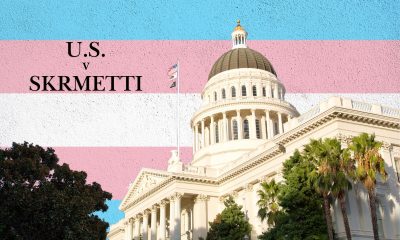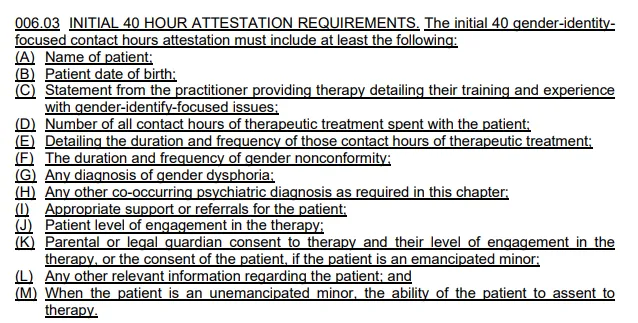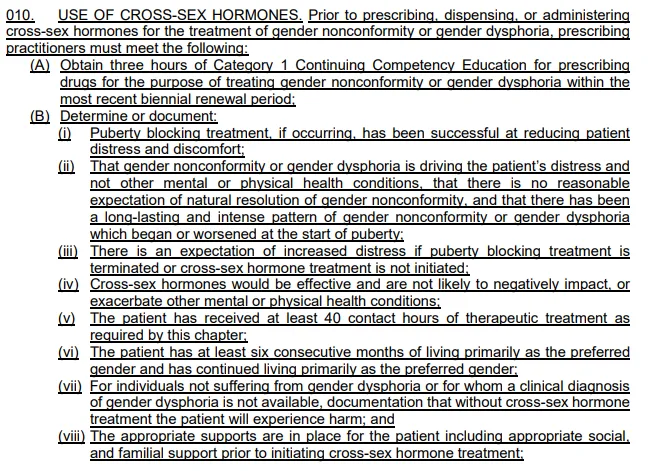Nebraska
Vote won’t be final word on abortion, trans rights says ACLU
Gender-related care restrictions take effect Oct. 1. Youth already receiving treatment are exempted from new restrictions on nonsurgical care
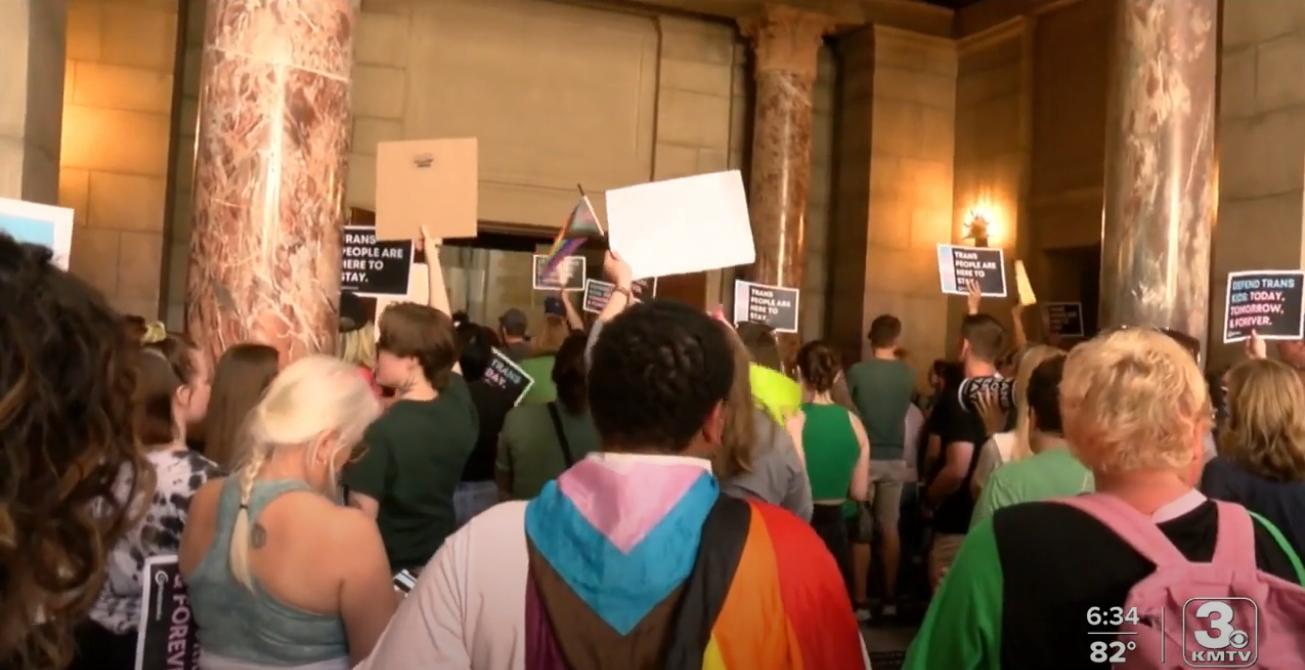
LINCOLN, Neb. – Today, Nebraska state senators narrowly overcame a filibuster and approved new restrictions on abortion access and transgender adolescents’ health care.
Hundreds of Nebraskans filled the State Capitol Rotunda ahead of the final vote on LB 574, urging and pleading senators to vote no on the combined ban, chanting “keep your bans off our bodies” and “save our lives.”
The bill now heads to Gov. Jim Pillen’s desk, and Pillen has indicated he will sign it into law.
American Civil Liberties Union (ACLU) of Nebraska Interim Executive Director Mindy Rush Chipman made this statement on today’s vote:
“Senators just voted to deny Nebraskans medically necessary care and to trample their freedom to make decisions about their own lives, families and futures. The consequences of this drastic act of government overreach will be devastating. To be clear, we refuse to accept this as our new normal. This vote will not be the final word. We are actively exploring our options to address the harm of this extreme legislation, and that work will have our team’s full focus. This is not over, not by a long shot.”
It is with heavy hearts we share that LB574 advanced and is on its way to Governor Pillen’s desk.
— OutNebraska 🏳️🌈🏳️⚧️ (@OutNebraska) May 19, 2023
If you, or someone you know, are experiencing a crisis, please use the hotlines below:
Trans Lifeline: 877.565.8860
The Trevor Project: 1.866.488.7386 pic.twitter.com/fvAn5RPBpT
LB 574 significantly restricts abortion access, banning care 12 weeks after a patient’s last period, which is 10 weeks postfertilization. The bill contains exceptions for medical emergencies and sexual assault, but no exceptions related to fetal anomalies. The legislation also does not repeal existing criminal penalties on abortion care, thereby potentially subjecting medical providers to felony charges in certain circumstances.
The new abortion restrictions will take effect one day after the bill is signed by the governor.
The bill also bans surgical procedures for transgender Nebraskans under 19 years old and tasks Nebraska’s chief medical officer with adopting rules that will determine youth access to nonsurgical gender-related care, including puberty blockers and hormones. After passage, gender-related care restrictions take effect Oct. 1. Youth already receiving this treatment are exempted from new restrictions on nonsurgical care.
The bill’s passage comes at a time when the nation is seeing a record number of bills targeting LGBTQ+ rights. Nationally, LB 574 is one of more than 100 bills introduced this year that focus on limiting LGBTQ+ people’s access to health care. Most are aimed at trans youth.
Nebraska
Nebraska is latest state to defy Federal Title IX rule change
15 states are suing over the final Title IX rule, but not Nebraska. Governors in at least 6 states also directed districts to defy the rule
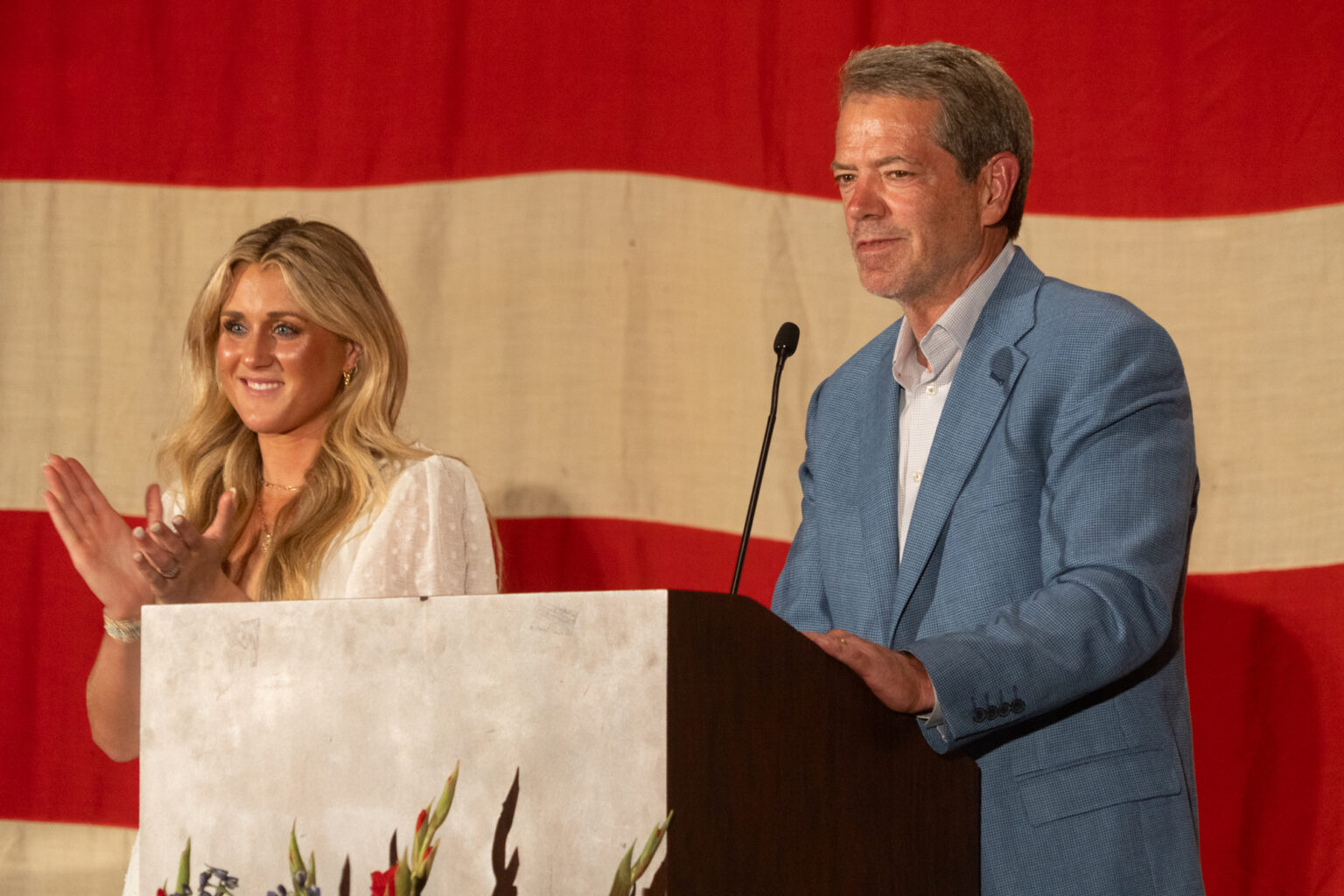
By Zach Wendling | LINCOLN, Neb. — Nebraska Gov. Jim Pillen on Friday announced he is joining a handful of states in planning to defy new Title IX rules from the Biden administration set to take effect in August.
Pillen, in a Friday news release, said the “rewrite of Title IX is an affront to the common sense idea that men do not belong in women’s only spaces” and is a “direct attack” on the Women’s Bill of Rights that he established by executive order last August. Under that order, state agencies, boards and commissions must define someone’s sex as male or female at birth.
Title IX, a 1972 rule, prohibits sex discrimination in educational programs that receive federal funding. The changes explicitly protect gender identity and sexual orientation.
Pillen on Friday said Nebraska “must fight against radical gender ideology and vigorously protect the rights of Nebraska women and girls.”
“Protecting our kids and women’s athletics is my duty,” Pillen said in a statement. “The president’s new rules threaten the safety of women and their right to participate in women’s sports. Nebraska will not comply.”
Under Pillen’s Women’s Bill of Rights, a “female” is defined as someone whose biological reproductive system is developed to produce ova; a “male” is someone whose biological reproductive system is developed to fertilize the ova of a female.
At least 15 states are suing over the final Title IX rule, but not Nebraska. Governors and state education chiefs in at least six states — Arkansas, Florida, Louisiana, Montana, South Carolina and Oklahoma — have also directed districts to defy the rule.
The U.S. Department of Education has said states not in compliance with Title IX risk losing federal funding.
The revised Title IX guidelines, to which the U.S. Department of Education has given final approval, are scheduled to take effect Aug. 1.
LGBTQ students who face discrimination would be entitled to a response from their school under Title IX, allowing recourse from the federal government when schools do not do so.
The revisions also reverse many changes led by former Education Secretary Betsy DeVos that added new protections for students accused of sexual misconduct, which currently require such conduct to be “severe, pervasive and objectively offensive.”
Colleges will also not be required to hold live hearings to allow students to cross-examine one another through representatives.
The new regulations do not include a planned provision to prevent schools from categorically banning transgender student-athletes from sporting teams.
Nebraska lawmakers fell two votes short of advancing legislation this year that would have done just that. The introducer, State Sen. Kathleen Kauth of Omaha, has said she intends to try again next year, a plan that she has said could involve Pillen’s Women’s Bill of Rights.
******************************************************************************************

Zach rejoins the Nebraska Examiner after studying abroad in Antigua, Guatemala, following a yearlong Examiner internship. His coverage focus areas have included politics and government, health and well-being and higher education.
******************************************************************************************
The preceding article was previously published by the Nebraska Examiner and is republished with permission.
Nebraskans want accountability from their elected officials and government. They want to know whether their tax dollars are being well-spent, whether state agencies and local governments are responsive to the people and whether officials, programs and policies are working for the common good. The Nebraska Examiner is a nonprofit, independent news source committed to providing news, scoops and reports important to our state.
We’re part of States Newsroom, the nation’s largest state-focused nonprofit news organization.
Nebraska
Anti-trans restrictions fall short in Nebraska Legislature
The act failed to advance by two votes & is likely dead in final days of the session; introducer says the measure will return in 2025
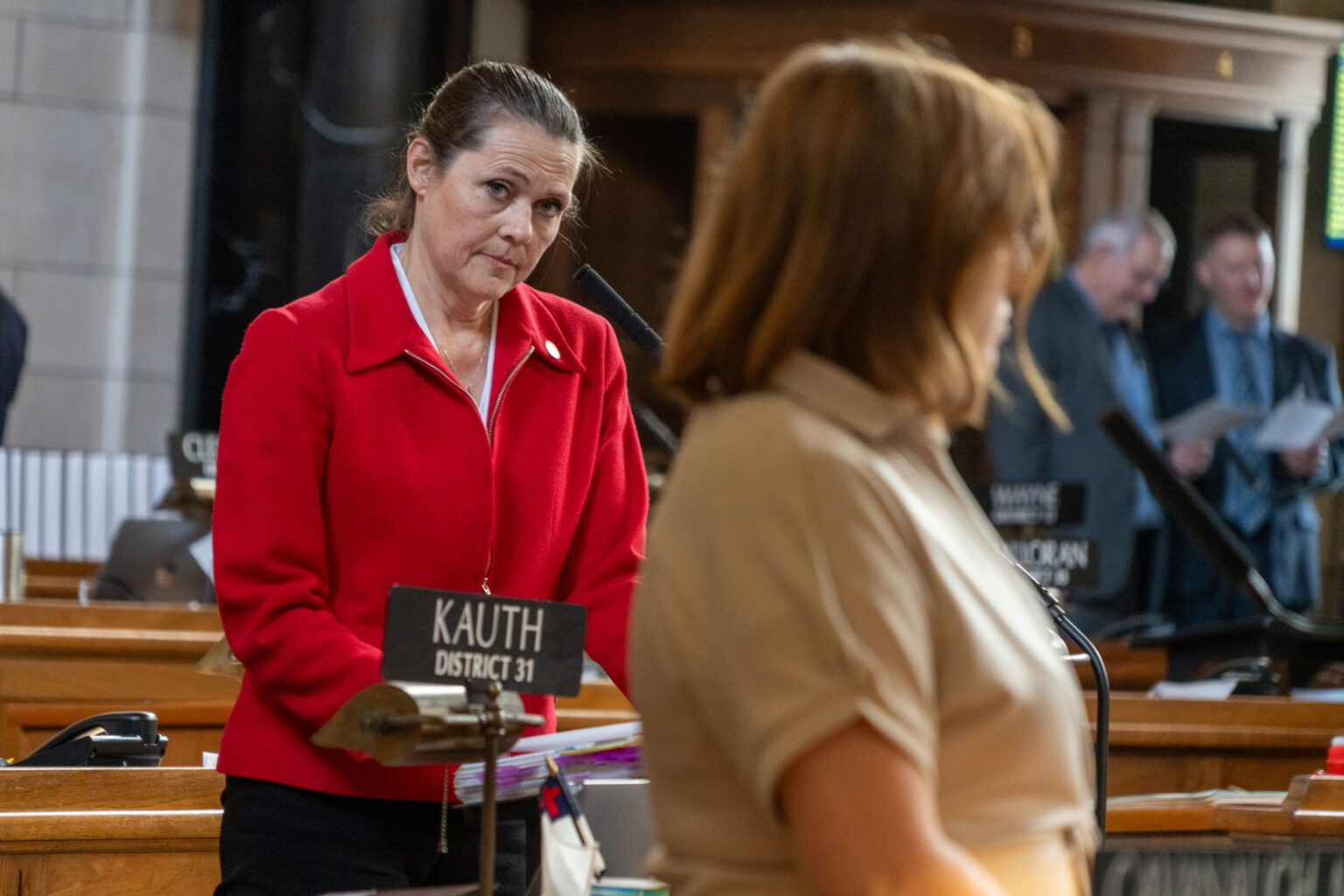
By Zach Wendling | LINCOLN, Neb. — State lawmakers fell two votes short of advancing a proposal Friday that would define K-12 school bathrooms and sporting teams as male or female based on students’ sex at birth.
Legislative Bill 575, the Sports and Spaces Act introduced by State Sen. Kathleen Kauth of Omaha, fell 31-15, after two conservative lawmakers who originally signed on to the bill when it was introduced last year did not vote for the measure: State Sens. Tom Brandt of Plymouth and Merv Riepe of Ralston. That was two votes short of the 33 votes needed to end debate on the bill.
Riepe, who had said his vote would be a “mystery” until the very end, condemned Friday’s last-minute effort on a bill that was advanced to the floor just one day prior, while Brandt questioned how the bill’s policies would be enforced and paid for.
Next steps for the legislation
With Friday’s failed vote, the bill is effectively dead for the year. Speaker John Arch of La Vista said there is not enough time to try to combine bills, which could have been a next step to give LB 575 another chance on a different bill next week.
Friday’s vote wasn’t a “terrible surprise,” Kauth said, but she thought Brandt and Riepe would be in support — an internal vote count indicated 32 senators in support with one “leaning.”
Kauth said the measure will return in 2025 and said she is willing to address other senators’ concerns. The proposal could include restrictions on collegiate athletics, as she indicated last August might be next.
In the “audaciousness of going big,” Kauth added, she’ll look at whether more issues should be addressed, such as Gov. Jim Pillen’s “Women’s Bill of Rights.”
“We’ll try it again next year,” Kauth told reporters after the vote.
‘Heavy hand of government’
Riepe was among the first to signal cracks in the legislation last year when he went through the procedural step of removing his name from the bill. At the time, he revealed that he had alerted Kauth to his discontent with the State Board of Education for not stepping up on this issue.
The Ralston senator said he met with multiple transgender students and their families and was impressed with the love and concern he saw. Riepe remarked that they were seeking accommodation, not attention, for “the life they have been given in this very complicated world.”
“Thank God for His creation and the strength of families and friends who love these transgender students and walk the walk with them every day through every challenge without the heavy hand of government,” Riepe said Friday.
Kauth said her bill was about protecting women’s sports and protecting the dignity and privacy of all school-aged children in the most intimate places. Without her bill, she said, “women will lose” and they’ll be robbed of scholarships in addition to trophies. They’ll also miss out, she said, on lessons learned from sports that could prepare them for their careers later in life.
“Women and girls are going to start refusing to participate in sports knowing that the deck is stacked against them,” Kauth said.
State Sen. Dave Murman of Glenvil, Education Committee chair, said the Legislature needed to realize there are physical differences between boys and girls, such as in sports records maintained by the Nebraska School Activities Association.
Policy already in place
The Nebraska School Activities Association already has a Gender Participation Policy, which has been in place since January 2016. Less than 10 students have applied and been approved to play on the sporting team of their choice.
Riepe passed out the NSAA policy to all lawmakers Thursday night.
“The NSAA has steadfastly provided oversight and guidance,” Riepe said, noting it allows superintendents to work one-on-one with families “with fairness, safety and respect for all.”
State Sen. Tom Brandt of Plymouth said he hopes Friday is the last time he needs to speak on LB 575, calling Nebraska a “leader in the nation” for its NSAA policy, which is an “excellent document” already working for the state.
State Sen. Lynne Walz of Fremont suggested lawmakers put those regulations into law.
Kauth and State Sen. Teresa Ibach of Sumner expressed concern about the NSAA policy because it allows member schools to adopt their own policies. Two Nebraska districts — in Kearney and Norfolk — subsequently adopted policies similar to LB 575 last year.
Kauth said the policy also advocates for children to use puberty blockers and cross-sex hormones, which she moved to fully ban last year. An amended bill, LB 574, restricted how youths could access those medications.
Riepe also argued the State Board of Education delegated its authority to the Legislature for fear of legal consequences over trying to establish such a policy, choosing “to sidestep its leadership responsibility and place the financial liability on the state Legislature and state taxpayers.”
“Certainly not a profile in courage,” he said. “We are seeking to create a problem that does not exist.”
Kauth said the state board isn’t an option, pointing to a previous conservative effort on library books that fell short last month. She said in 2023 that the board didn’t “have the teeth for it.”
Legislature running out of time
Speaker Arch repeated Friday morning that the Legislature is running out of time, with four days left after Friday for lawmaking.
Riepe blasted lawmakers for spending time on LB 575 and said local control mattered to school boards only until an issue became “tough,” such as restricting library books or sporting teams and bathrooms. Brandt and Riepe opposed that library measure last month.
State Sen. Wendy DeBoer of Omaha said there was probably a local board that could be spending time on these issues instead of state lawmakers who should be spending their time on property taxes and a revenue package for the whole state.
“Can’t we spend our time and our intellectual labor, which we need in order to get this right, about our tax packages?” DeBoer said.
State Sen. Carol Blood of Bellevue, who spent much of Friday questioning Kauth on the legislative history of her bill, said women don’t need the Legislature’s protections.
“We aren’t waiting for some man on a white horse or prince on a horse to come and rescue us,” Blood said, adding that women are winning, not losing.
A proactive law
State Sen. Brian Hardin of Gering said that to his knowledge, the problems identified in LB 575 aren’t a problem in his western Nebraska district, “but you don’t close the gate after the cattle are out.”
“You don’t hit the brakes until after you rear-end the car in front of you and you don’t put on sunscreen after you’ve been burned,” he said.

State Sen. Barry DeKay of Niobrara, who has officiated K-12 sports for 40 years, said he doesn’t foresee the State Board of Education tackling the issue and said inaction will end up to a “very weird gray area” where different schools have different policies on sports and bathrooms.
He said this could create “quite a mess” and lead to a “massive state controversy.”
DeKay said he has never refereed a game that included a trans player, to his knowledge.
“I’m not concerned about the last 40 years,” he told the Examiner after the debate. “I’m concerned about what might happen to my grandkids in the next 20 years.”
‘Put the genie back in the bottle’
State Sen. George Dungan of Lincoln also noted the “legal precarious grounds” that LB 575 sits on, even after a Tuesday advisory opinion from Nebraska Attorney General Mike Hilgers. The attorney general opined that the bill, as introduced, would pass “constitutional muster.”
An Education Committee amendment advanced with LB 575 in a 5-3 vote added a new restriction that would prohibit transgender boys from playing any sports if they are taking cross-sex hormones.
The amendment would add the word “transgender” to the bill, undercutting Hilgers’ opinion that it “cannot be said to single out transgender students” because it didn’t mention gender identity. Kauth listened to concerns raised in the committee and offered on Friday to take out this part.
“But that’s not trying to fix it in good faith,” Dungan said. “That’s trying to put the genie back in the bottle or the toothpaste back in the tube because the intent of this bill has been made clear. The intent of this bill is to discriminate against transgender youth.”
Chromosomes and enforcement
LB 575 would define “male” and “female” based on students’ chromosomes. Multiple senators questioned how schools would feasibly apply that policy.
The proposal would have left implementation to each of Nebraska’s 244 school districts.
“How do you tell when you’re looking at a child?” Riepe asked. “Are they like shirt sizes? Are they an ‘X’ and a double ‘X’ or triple ‘X,’ and what are they?”
State Sen. Jen Day of Omaha, who said she has played sports from an early age, including against men, echoed those concerns that no one has ever asked for her or her children’s chromosomes.
“No one came into the delivery room when my children were born and did a test to see what chromosomes they have,” Day said. “How do we know?”
Kauth told the Nebraska Examiner on Thursday that student birth certificates or a doctor’s attestation, such as through an annual physical examination, could satisfy her bill’s requirement.
Riepe said Thursday night he has signed many birth certificates — and none included information about chromosomes.
Brandt questioned who would pay for student chromosomal tests or extra bathrooms and lockers and asked if it would be an unfunded mandate on some of the smallest schools in his district, whichare “very strapped for cash.”
He also asked how LB 575 would apply to multi-chromosomal or intersex children, who are not trans and might be born with multiple sex characteristics. They might not even know that part of their identity — their parents might never have told them, Brandt added.
For a father with his young daughter or mother with her young son, Brandt asked how those parents could help their children go to the bathroom at a school event without violating the law.
“This bill is not thought out enough to address this,” Brandt said.
******************************************************************************************

Zach rejoins the Nebraska Examiner after studying abroad in Antigua, Guatemala, following a yearlong Examiner internship. His coverage focus areas have included politics and government, health and well-being and higher education.
******************************************************************************************
The preceding article was previously published by the Nebraska Examiner and is republished with permission.
Nebraskans want accountability from their elected officials and government. They want to know whether their tax dollars are being well-spent, whether state agencies and local governments are responsive to the people and whether officials, programs and policies are working for the common good. The Nebraska Examiner is a nonprofit, independent news source committed to providing news, scoops and reports important to our state.
Nebraska Examiner is part of States Newsroom, the nation’s largest state-focused nonprofit news organization.
Nebraska
Nebraska Governor signs off on finalized anti-trans care regulations
“State officials have decided to flatly ignore the serious concerns raised by impacted young people as well as their family members”
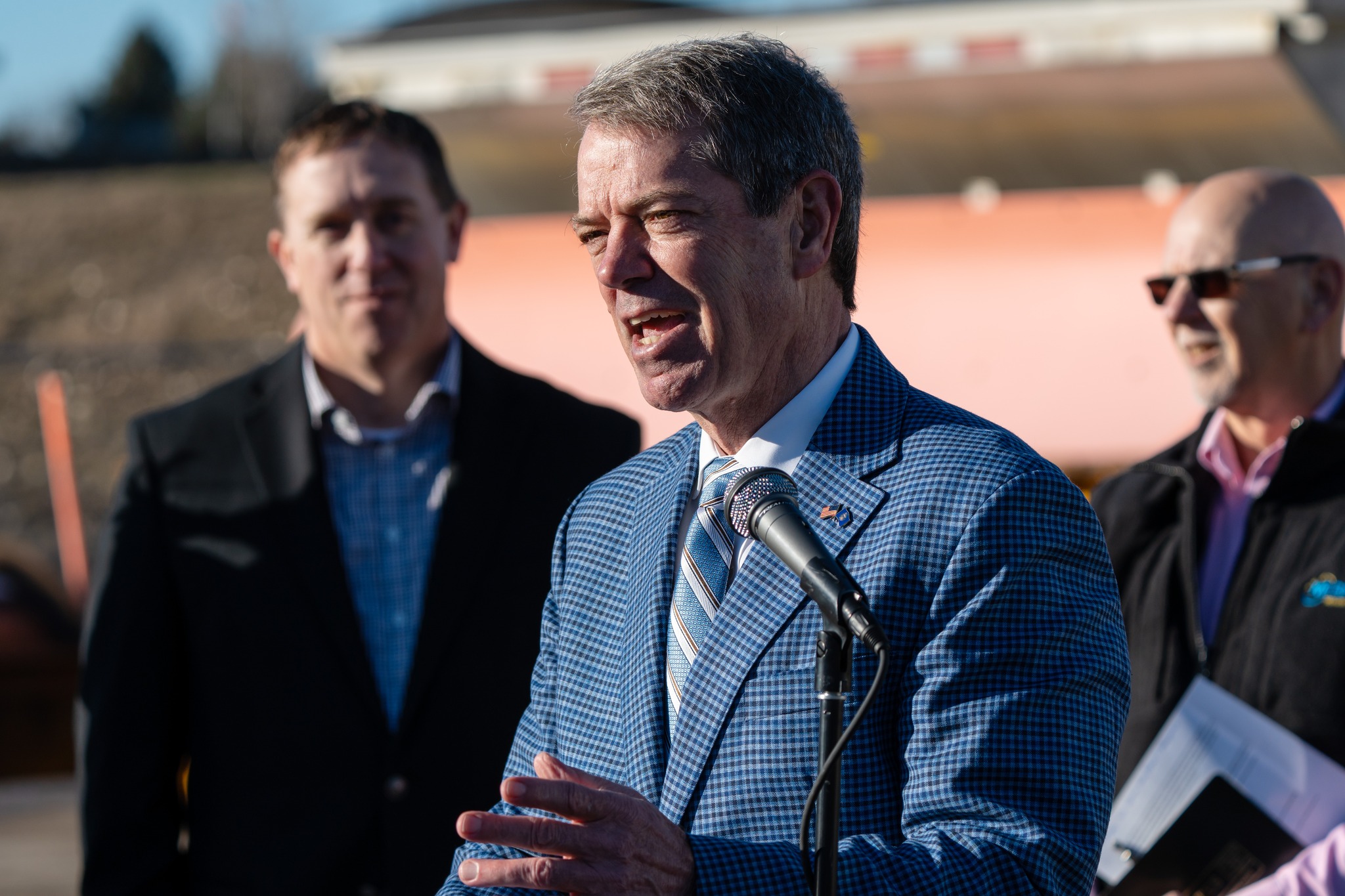
LINCOLN, Neb. – Nebraska’s Republican Gov. Jim Pillen has approved regulations restricting access to certain medical care for transgender youth this week, finalizing a process that began last October with the Department of Health and Human Services’ release of emergency regulations.
Pillen’s approval comes despite continued outspoken opposition from impacted families and medical providers who have said the restrictions conflict with standards of care.
The restrictions are the result of a bill senators passed last year, which gave rise to a lawsuit challenging the bill’s combination of a 12-week abortion ban and transgender care restrictions as a violation of the state constitution’s requirement that “no bill shall contain more than one subject.”
The restrictions, allowed under a new law passed by the Nebraska legislature this year, would curtail gender affirming care for those under the age of 19, the age of majority in the state. While several restrictions are poised to create hurdles for those seeking care, one in particular stands out: A mandate that all trans youth seeking treatment undergo five months of therapy that is “not in a gender affirming context,” a nod to a novel form of conversion therapy championed by those opposed to gender-affirming care.
“State officials have decided to flatly ignore the serious concerns raised by impacted young people as well as their family members and their medical and mental health providers,” ACLU of Nebraska Legal Fellow Grant Friedman said.
“To be clear, we are talking about gender-affirming care that is endorsed by major medical organizations and recognized as often life-saving care. Young trans Nebraskans and their families have been struggling to access needed gender-affirming care under the emergency regulations, and now they know that will continue under these discriminatory final regulations. Trans youth deserve access to gender-affirming care, and they deserve a lot better than this. As we await the Nebraska Supreme Court’s decision, our team continues to explore all options to ensure that trans youth have access to the care they need,” Friedman added.
Nebraska
Homophobic slurs inspires Omaha Realtor & landlord
“This place is right by an elementary school so we get lots of kids walking by with smiles on their faces. It has been about 99% positive”
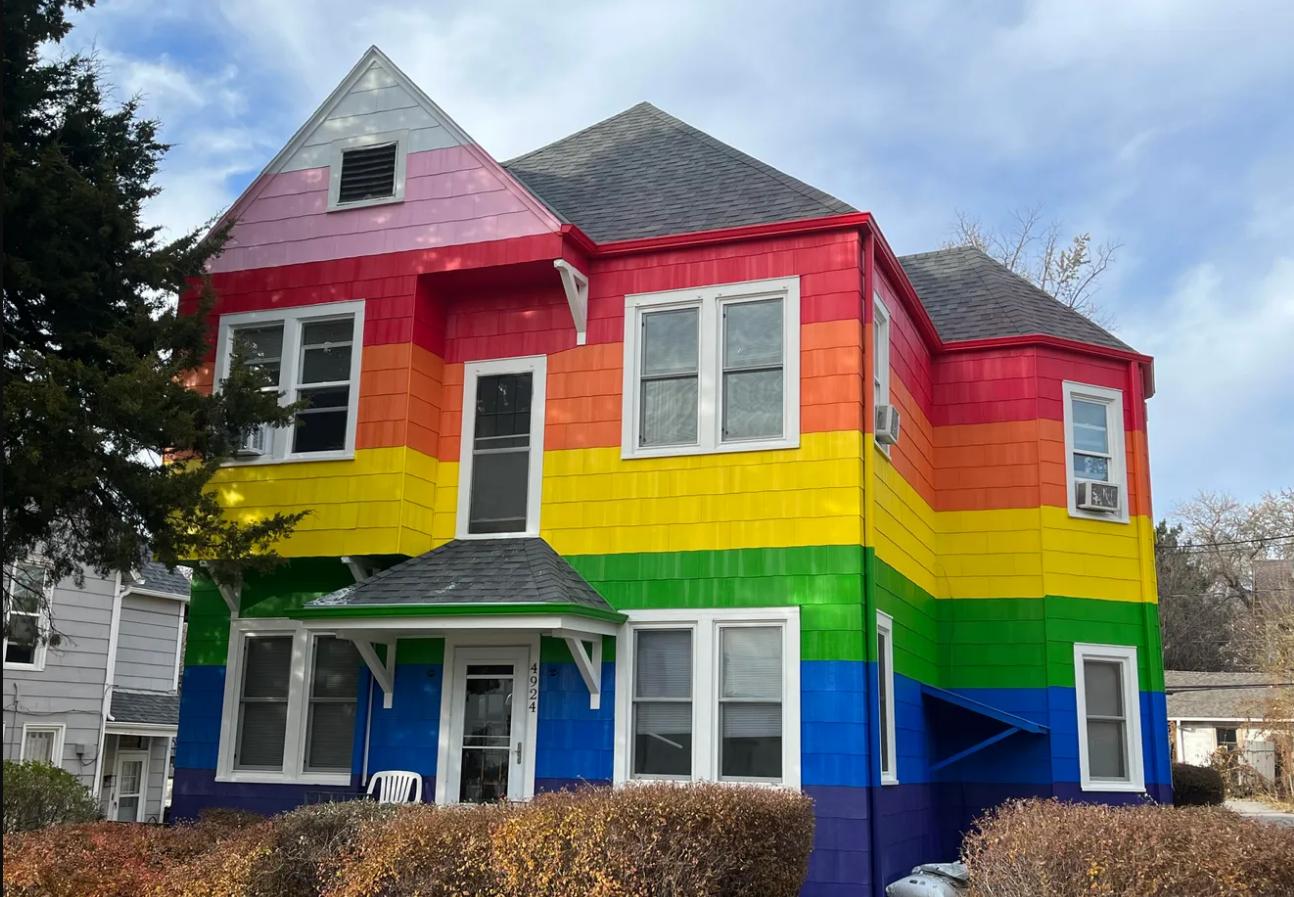
OMAHA, Neb. – Local realtor Ryan Basye asked his three daughters: 5-year-old Cecilia, 7-year-old Louise and 9-year-old Josephine what colors he should paint an over 100-year-old house he owned and his girls told their dad they thought a rainbow design would be pretty neat.
Then Basye remembered a conversation with another property owner on the block where the house stands. The house, which was converted into apartments after the Great War in 1918, has five units and is located on Davenport Street in Omaha’s Dundee neighborhood.
In an interview with USA Today journalist Saleen Martin, Basye said that after his conversation with his daughters about his next project, the mention of the rainbow design; “[It] brought me back to a conversation I had with (a property owner) on that block that used some derogatory words and that didn’t sit well,” he told USA TODAY.
The property owner’s comments were made in 2022 and included a slur and stereotypes often used for gay men. The individual also told Basye his property didn’t look very good compared to their own property on the street, Basye told USA TODAY.
According to USA TODAY, Basye’s daughters and their rainbow paint job suggestion reminded him of the uncomfortable conversation and from there, Operation Rainbow House was set in motion. Basye said that he asked a local painter he works with, Jay Axelrod of Everything Axelrod, to sign on and paint the home this past summer. They had to work out the details, make sure the weather was right and then in October they got started.
USA TODAY also noted that Basye’s daughters love the house and call him a “cool dad,” he said. They’re almost like elementary school celebrities, he laughed.
He hasn’t heard anything about the house from the property owner who made the jarring comments but people in the neighborhood love the house, he said.
“This place is right by an elementary school so we get lots of kids walking by with smiles on their faces,” he said. “It has been about 99% positive.”
Nebraska
Nebraska to force “non-affirming therapy” on trans kids
In guidelines released by the state, trans youth will have many requirements to start care, including one likened to conversion therapy
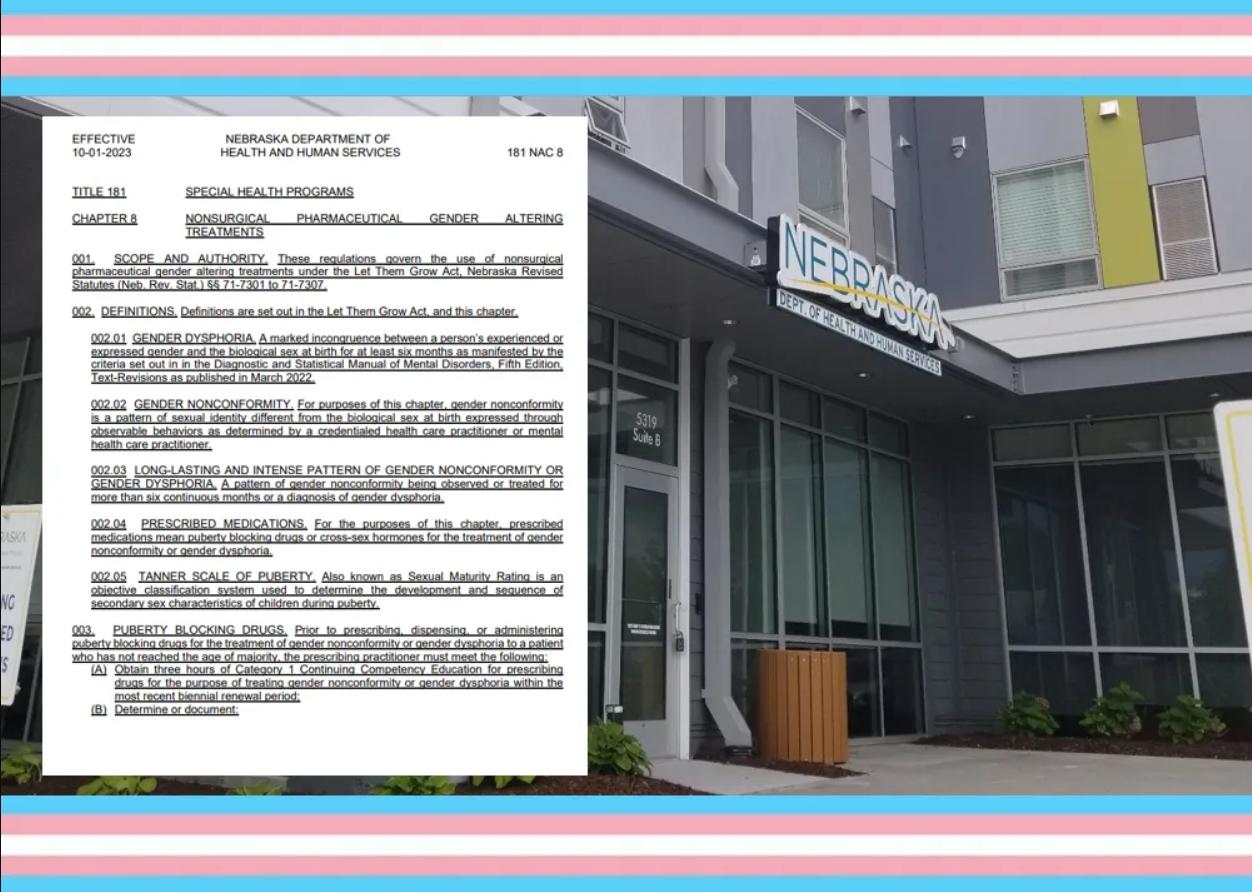
Editor’s note: Important update- The regulations have been removed from the website but can be found in an archive here.
By Erin Reed | LINCOLN, Neb. – A new set of regulations released on Monday morning by the Nebraska Department of Health and Human Services spells out several new restriction on transgender youth in the state.
The restrictions, allowed under a new law passed by the Nebraska legislature this year, would curtail gender affirming care for those under the age of 19, the age of majority in the state. While several restrictions are poised to create hurdles for those seeking care, one in particular stands out as especially troubling: a mandate that all trans youth seeking treatment undergo five months of therapy that is “not in a gender affirming context,” a nod to a novel form of conversion therapy championed by those opposed to gender-affirming care.
The new regulations delineate a series of hurdles that transgender youth must navigate to access care. One rule, for instance, mandates that trans youth must have been fully out and living as their gender identity for six months prior to treatment, a throwback to an archaic and decades-old standard of care. This standard was discarded following criticisms that requiring transgender individuals to present as their gender identity, before hormones could facilitate such presentation, was psychologically painful and not linked to improved outcomes. Another stipulation demands that only a trans youth’s parents may collect their prescription, which must be labeled for gender dysphoria. Additionally, these youth must be handed obligatory medical misinformation forms, proclaiming the medication to be risky and promoting “alternatives” to care.
Most troublesome, however, is a particular regulation on the mental healthcare of transgender youth. The document states that transgender youth must obtain 40 hours of therapy, with a maximum of two such hours per week, that is “not in a gender affirming context.” Read literally, this could involve forcing transgender youth to be misgendered and their old names used for months before obtaining care. Such a regulation may put therapists and providers in legal jeopardy merely for practicing the basic respect and dignity of their patients. The guidelines also state that the therapy has to probe for other “mental and physical health conditions” that the guidelines claim may be “driving the patients distress.”
You can see the guidelines around therapy here:
Collectively, these guidelines champion a new form of conversion therapy dubbed “Gender Exploratory Therapy.” Despite its innocuous name, this therapy seeks to explore all possible causes for a transgender person to experience gender dysphoria other than genuine transness.
It’s important to highlight that the patient being transgender is never deemed an acceptable conclusion. Treatments are perpetually dangled just beyond reach until the trans youth believes they are not actually transgender, that too much time has elapsed and puberty has induced too many changes for a successful transition, or they turn 18 and age out of care.
Mirroring crisis pregnancy centers, these tactics are deployed under the pretense of “alternative care” and “neutral treatment,” despite the deception inherent in the care provided. The duplicity surrounding gender exploratory therapy is evident in its founders, its practitioners, and on the Gender Exploratory Therapy Association’s (GETA) own website.
One of GETA’s co-founders, Lisa Marchiano, was implicated in leaked emails of a working group seeking to ban gender-affirming care nationwide. In these correspondences, she employs the far-right doxxing website Kiwifarms to relay information about a transgender activist to Fox News.
Although the GETA website presents the practice as “care without pushing a political agenda,” it conspicuously displays a brief aimed at blocking Title IX anti-discrimination protections for transgender youth. Evidently, “value neutral, non-ideological care” is a misnomer for this form of therapy.
Many accounts of patients going through gender exploratory therapy can be found in a widely-viewed thread soliciting patients experiences, and the practice of delaying transition through the associated practice of “watchful waiting” is is explicitly condemned by the American Academy of Pediatrics. Because of widespread harm caused by this kind of therapy, the practice has been recognized as unethical in medical ethics journals.
Collectively, these new guidelines were put in place after the passage of LB547, the “Let Them grow Act.” Fittingly with the comparisons to the way these kinds of practices are levied at those seeking abortions, the bill was a combination bill banning abortion up to 12 weeks as well while also containing the provisions allowing for these kinds of restrictions on trans youth. It passed the Nebraska legislature by a narrow supermajority after Democrats filibustered the law for three months.
These new policies were developed under the guidance of the state chief medical officer, Dr. Timothy Tesmer, an appointee by Governor Jim Pillen, who called gender affirming care “Lucifer at its finest.” These policies were released on an emergency basis pending the adoption of permanent regulations and will go into effect immediately. A hearing is planned on November 28th on the permanent rules for gender affirming care under the new law.
****************************************************************************

Erin Reed is a transgender woman (she/her pronouns) and researcher who tracks anti-LGBTQ+ legislation around the world and helps people become better advocates for their queer family, friends, colleagues, and community. Reed also is a social media consultant and public speaker.
Follow her on Twitter (Link)
Website here: https://www.erininthemorning.com/
******************************************************************************************
The preceding article was first published at Erin In The Morning and is republished with permission.
Nebraska
‘Definition of male & female solely on biological sex’: Nebraska Gov.
The order comes just a few days after former University of Kentucky swimmer Riley Gaines met with Pillen and other state officials
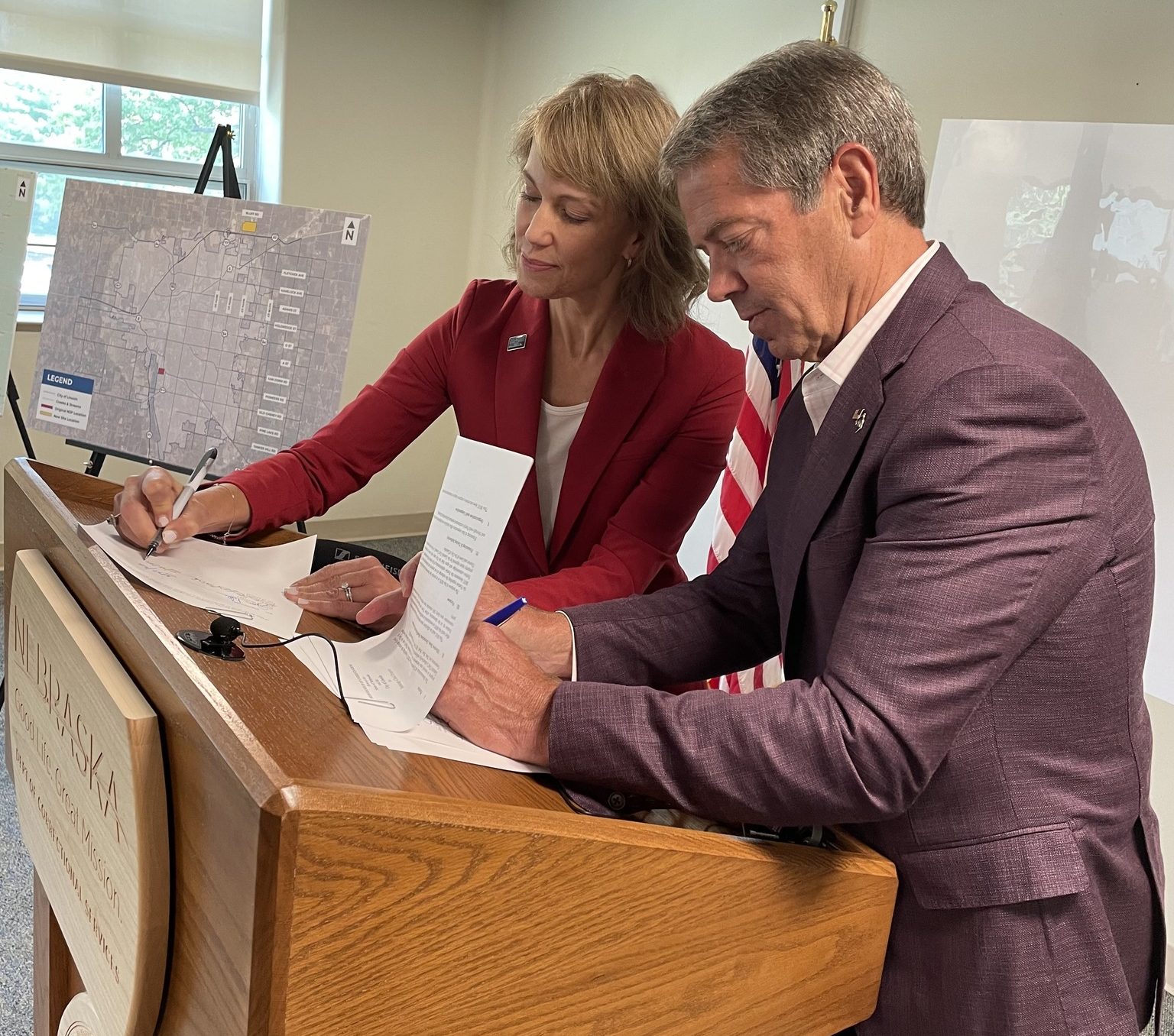
LINCOLN, Neb. – Nebraska’s Republican Governor Jim Pillen signed an Executive Order Wednesday declaring the definition of male and female, known as the Women’s Bill of Rights, was solely based on biological sex at birth.
“It is common sense that men do not belong in women’s only spaces,” said Pillen as he signed the order. “As Governor, it is my duty to protect our kids and women’s athletics, which means providing single-sex spaces for women’s sports, bathrooms, and changing rooms.”
The executive order establishes, for purposes of state government:
- A person’s biological sex is defined at birth
- The reasons for defining a person’s biological sex
- Establishes guidelines for reporting of data
This executive order goes into effect immediately.
The Omaha World-Herald reported the order comes just a few days after former University of Kentucky swimmer Riley Gaines met with Pillen and other Nebraska officials to push for restrictions against trans athletes.
Gaines, who has been traveling across the nation, has fostered a media persona this year speaking out against the inclusion of transgender women in women’s sports.
Nebraska Stonewall Democrats, the official LGBTQIA+ caucus of the Nebraska Democratic Party, issued a statement Wednesday in response to the Governor’s newest executive order, saying the Governor, “abused his executive powers to unnecessarily attack the most marginalized Nebraskans under the guise of defending women.”
The statement issued via Facebook continued, “Pillen’s so-called “Women’s Bill of Rights” diverts focus from workplace protections, programs that support families, and abortion – the real pressing issues facing Nebraskan women – and chooses instead to set exclusionary and vague standards for participation in gendered spaces.”
KLIN News Talk Radio 1400 AM/99.3 FM located in Nebraska’s capital city reported:
Before Gains’ recent rally, transgender Nebraskans were a focal point this year, as lawmakers passionately debated and eventually passed the highly controversial “Let Them Grow” act, LB574, which outlawed transgender related health care for minors in the state.
The bill passed narrowly by a singular vote, cast by Omaha’s Democratic Senator Mike McDonnell… and Stonewall Dems Chair Michael Marcheck is not afraid to acknowledge the call was coming from inside the house.
“Thanks to Senator Mike McDonnell ‘s unconscionable support and passage of LB574, transgender youth face limited access to gender affirming treatments that mitigate the concerns about the advantages of testosterone puberty,” Marcheck wrote, pitching that Pillen’s new exec-order is meant to tee up the introduction of LB575, a.k.a. “The Sports and Spaces Act,” which prohibits transgender youth from participating on sports teams of their identified gender.
“Any senator, Republican or Democrat, that supports LB574, the executive order signed today, or LB575 should be formally admonished for violating the human rights of Nebraskans,” Marcheck concluded. Echoing recent calls for an intra-party rebuke of McDonnell, who towed the centrist line this session, voting along side Republicans on several decisive bills.
Nebraska
Nebraska school board axes journalism over LGBTQ+ coverage
“You can’t censor a student newspaper you no longer have.” Ending student newspaper programs is becoming a more common form of censorship
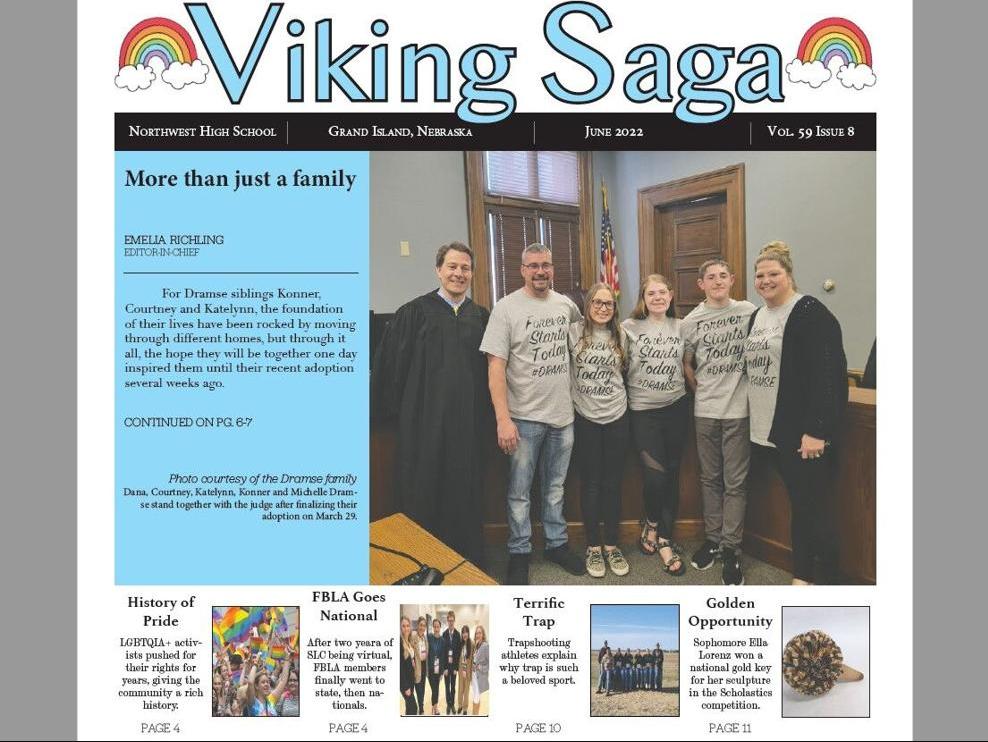
GRAND ISLAND, Ne. – For 54 years the Northwest High School student run newspaper, the Saga, had kept the generations of students who attended informed, entertained, and engaged in their school and its activities. In fact, according to the local Grand Island Independent newspaper, Northwest High student media, including Saga staffers, earned third place at the 2022 NSAA State Journalism Championship.
Returning students as school started this Fall Semester however will not have the paper to read or use as a resource after school administrators led by Northwest Superintendent Jeff Edwards killed the paper after its staff had published content in the 2022 school year-ending issue of the Saga newspaper, that included student editorials on LGBTQ topics, along with a news article titled “Pride and prejudice: LGBTQIA+” on the origins of Pride month and the history of homophobia.
The Grand Island Independent reported and which had printed the school paper on its press, was informed in late May “the (journalism and newspaper) program was cut because the school board and superintendent are unhappy with the last issue’s editorial content.”
On Sunday, May 22, a Northwest School District employee emailed the Grand Island Independent press and advertising teams to cancel the company’s Northwest Viking Saga printing services. Notification of staff and students of the program’s elimination came May 19, according to the employee. The June issue was printed on May 16.
Then the school district went further and eliminated the high school’s journalism program entirely. When the Grand Island Independent’s Education reporter Jessica Votipka asked Northwest Principal P.J. Smith why the program was shuttered, Smith referred the Independent’s questions to district superintendent Jeff Edwards, who declined to answer the questions of when and why the student paper was eliminated, saying only that it was “an administrative decision.”
According to the Independent’s reporting, Northwest Public Schools Board of Education vice president Zach Mader said there had been previous discussion about eliminating the newspaper if the school board could not control content it deemed inappropriate.
“The very last issue that came out this year, there was … a little bit of hostility amongst some,” Mader said. “There were editorials that were essentially, I guess what I would say, LGBTQ.” But he hedged on the actual reason for the demise of the half century journalism program.
However, school board President Dan Leiser said that the board had little to do with the decision instead saying that the board was “supportive” of Superintendent Edwards’ reasons to get rid of the program and the student newspaper.
The LGBTQ+ coverage also had its roots in the Saga’s writing staff as former Saga staff member Marcus Pennell, who is a trans male, was deadnamed in his byline in the last edition in the wake of an earlier conflict with school administrators last April.
The Saga staff was reprimanded in April after publishing preferred pronouns and names in bylines and articles, according to students. District officials told students to use only birth names going forward.
Pennell was forced to use his deadname which he told the Independent’s Votipka:
“The (name) thing was the first big blow,” he said.
Pennell said he has been subject to adversity because of being transgender, but hearing directly from the school administrators was different.
“It was the first time that the school had officially been, like, ‘We don’t really want you here,’” Pennell said. “You know, that was a big deal for me.”
Advocates for freedom of the press were angered by what is seen as blatant anti-First Amendment actions taken by the Superintendent Edwards on behalf of the Northwest Public Schools Board of Education.
Sara Rips, legal counsel for ACLU of Nebraska noted in her comments to the Independent:
“It sounds like a ham-fisted attempt to censor students and discriminate based on disagreement with perspectives and articles that were featured in the student newspaper.”
Nebraska Press Association attorney Max Kautsch, who specializes in media law in Nebraska and Kansas, noted that press freedom is protected in the U.S. Constitution.
“The decision by the administration to eliminate the student newspaper violates students’ right to free speech, unless the school can show a legitimate educational reason for removing the option to participate in a class … that publishes award-winning material,” Kautsch said. “It is hard to imagine what that legitimate reason could be.”
Mike Hiestand, senior legal counsel for Student Press Law Center, told the Independent that ending student newspaper programs is becoming a more common form of censorship. The center is a nonpartisan group that advocates for student journalism press freedom.
“You can’t censor a student newspaper you no longer have.”
The Washington, D.C.-based nonprofit has been working directly with the Saga’s most recent staff on potential recourse.
Nebraska
Anti-LGBTQ+ group forces repeal of Lincoln LGBTQ rights ordinance
Two council members voting to rescind are openly gay. They said they voted to rescind fearing the measure would not survive at the ballot box
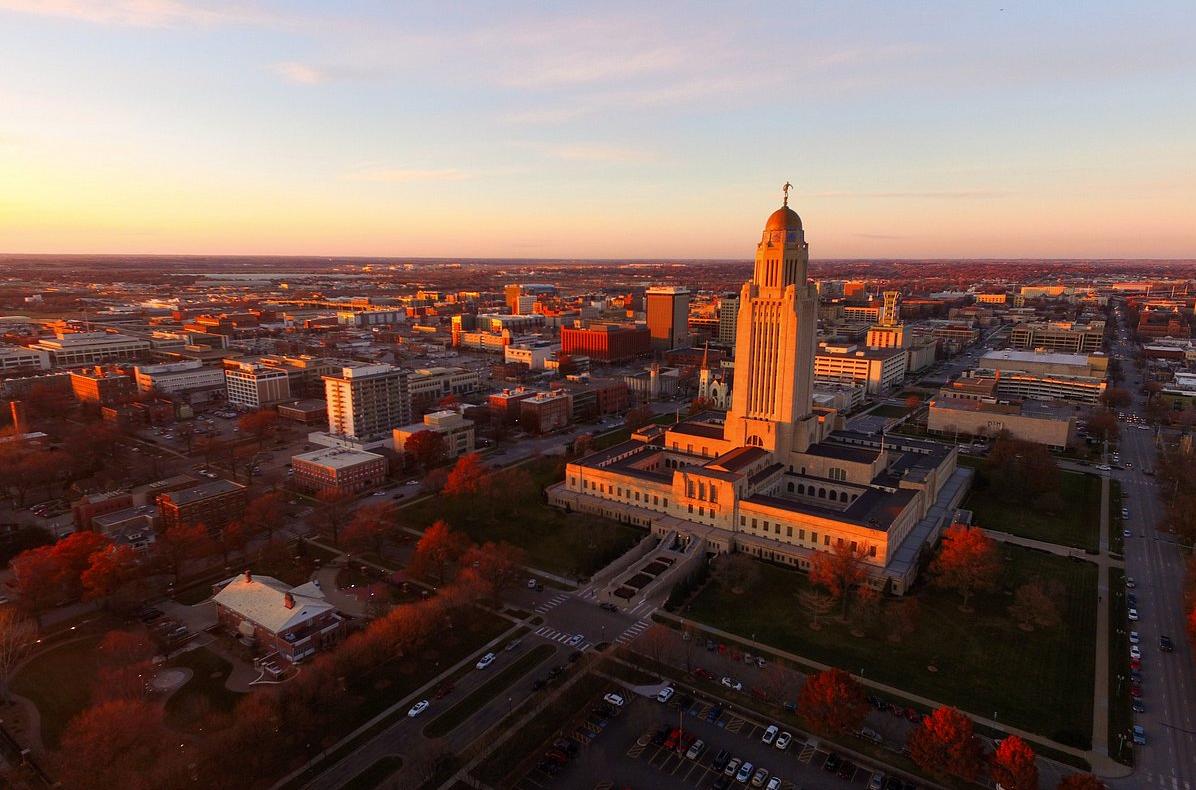
LINCOLN, Ne. – The City Council in Nebraska’s capital city has rescinded an anti-discrimination measure passed by the city council on February14 of this year which updated Title 11 of the city’s municipal code.
Known as the “Fairness Ordinance,” it included language clarifying and updating protections related to race, sexual orientation, gender identity, disability rights, family and martial status, as well as military and veteran status.
In a 4-3 vote Monday to rescind, the city had faced a successful petition effort by the Nebraska Family Alliance, a vehemently anti-LGBTQ+ conservative group that would have put the measure on the November ballot.
The Nebraska Family Alliance had launched the petition effort a day after the measure was adopted by the council in February, painting the effort as a “transgender bathroom ordinance.” The group contended the measure will force businesses, churches, and private schools to allow “trans-identified biological men to use women’s restrooms, locker rooms and showers if they identify as women.”
The anti-LGBTQ+ group characterized the council’s action as allowing broad definitions of sex, public accommodations, and sexual harassment. According to Bowling citizens could be held liable for tens of thousands of dollars in fines simply for expressing their religious/Christian beliefs if it has the “effect” of creating an “offensive” environment.
Council members voting to rescind — Tom Beckius and James Michael Bowers — are openly gay. They said they voted to rescind the protection for fear the measure would not survive at the ballot box. Beckius also noted that LGBTQ members of the community are already protected under a 2020 Supreme Court ruling saying that sexual orientation and gender identity are protected under Civil Rights Act.
The Associated Press reported Councilman Bennie Shobe, who had declined to say how he would vote before Monday, joined Beckius, Bowers and Richard Meginnis in voting to rescind. Shobe, who is Black, said he did so because civil rights should not be decided by public vote. He noted that his parents went to segregated schools and lived as second-class citizens in Kentucky until the U.S. Supreme Court and the Civil Rights Act guaranteed their rights under the law.
“However, if the civil rights of my parents had been put to a vote of the people, I am confident they would have been denied,” Shobe said.
Had the petition been added as ballot referendum, ACLU of Nebraska Legal and Policy Counsel Sara Rips said her group would have challenged it in court.
Nebraska
Nebraska capital city LGBTQ+ “Fairness Ordinance” challenged
Critics allege citizens could be held liable for tens of thousands of dollars in fines simply for expressing their religious/Christian beliefs

LINCOLN – A measure passed by the city council of Nebraska’s capital city a month ago on February14 updated Title 11 of the city’s municipal code. Known as the “Fairness Ordinance,” it included language clarifying and updating protections related to race, sexual orientation, gender identity, disability rights, family and martial status, as well as military and veteran status.
Critics contend that the measure will force businesses, churches, and private schools to allow “trans-identified biological men to use women’s restrooms, locker rooms and showers if they identify as women.”
The Executive Director of the Nebraska Family Alliance Karen Bowling characterized the council’s action as allowing broad definitions of sex, public accommodations, and sexual harassment. According to Bowling citizens could be held liable for tens of thousands of dollars in fines simply for expressing their religious/Christian beliefs if it has the “effect” of creating an “offensive” environment.
“We want Lincoln to be a fair and welcoming place for all people. Unfortunately, there was nothing fair about the ordinance passed by the city council,” Bowling said.
The Nebraska Family Alliance the day after the council action launched the “Let Us Vote” referendum initiative, to gather signatures that would force the City Council to put the “Fairness Ordinance” on the ballot in November or rescind the law entirely.
The referendum initiative needed 4,137 signatures, equivalent to 4% of voters in Lincoln. But petitions were signed by more than 18,500 voters in just 15 days Bowling announced in a press conference last week.
“Today is about due process,” she said, “to give a voice to Lincoln residents who love their city and love their neighbors. These petitions were circulated in every area of the city and every demographic,” Bowling said, adding that they received signatories from over 72 churches.
“Slovic, Ukranian, Vietnamese and Spanish-speaking churches of both Protestant and Catholic denominations have participated. Our friends from the Islamic Center also signed petitions as well as Republicans, Democrats and Independents,” she said.
She added that the initiative is “nonpartisan” and included people of different perspectives.
“Both proponents and opponents to the ordinance signed petitions because they believe the gravity of the issue should go to the vote of the people or the city council should rescind their decision,” Bowling said.
The ACLU of Nebraska is committed to educating and mobilizing voters if a challenge to Lincoln’s new nondiscrimination updates goes to voters the organization said in a press release.
“We’re proud to support this ordinance along with Lincoln’s business leaders, religious communities, young professionals and community organizations,” ACLU of Nebraska Legal and Policy Counsel Sara Rips said.
“It’s unfortunate that a vocal fraction of our community has chosen to use harmful and hateful misinformation to divide our city in an attempt to turn the clock back on basic human rights. Everyone deserves to be treated fairly on the job, when creating a home for themselves and their families, and in public life. We are ready to work to ensure Lincoln supports equality and to make sure no one in our community is left behind,” Rips added.
The Lincoln Journal-Star reported that at least four council members said they support putting the policy up for a vote. Such a vote would occur either in a special election or in November’s general election.
However, Dave Shively, Lancaster County’s election commissioner, told the Journal-Star that Nebraska state law doesn’t permit the holding of a special election so close to the date of a regularly scheduled election.
Nebraska
Nebraska ballot initiative would eliminate state Board of Education
A sponsor of the petition, said the initiative’s goal is to “give the power back to the people that are dealing directly with the children”
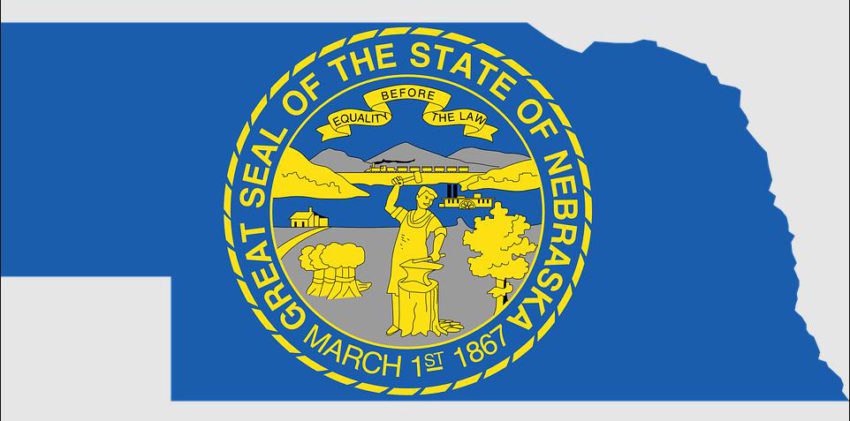
LINCOLN – A petition drive to eliminate the Nebraska Board of Education, shifting oversight to the governor’s office, is underway.
The proposal, which would change the state constitution, plans to replace the Nebraska Department of Education, the state Board of Education and education commissioner with a new Office of Education. The office’s director would be appointed by the governor, contingent on a state Senate confirmation. It would need 125,000 signatures by next July to make it to November’s ballot.
Kelli Brady, a sponsor of the petition, said the initiative’s goal is to “give the power back to the people that are dealing directly with the children,” according to the Omaha World-Herald.
Yet, critics say it would do the opposite and give too much power to the governor.
“I think Nebraska really is in good hands with the way we have it,” said Maureen Nickels, president of the state Board of Education.
The petition is one of an onslaught of “Restore the Good Life” initiatives — including a Critical Race Theory ban and a vaccine requirement ban, among others — sponsored by Republican Michael Connely, a 2022 gubernatorial candidate in Nebraska.
“There is no time to wait until after the elections in 2022 before we begin to move on fixing these problems,” Connely wrote in a blog post about the initiative in July. “There is no time to discuss positions. We must act now! Step up and help me do it. YOU take the power.”
“I want this one on the 2022 ballot even more than I want the Medical Freedom (no required Vax) and 2nd Amendment initiatives,” he added, noting it “will be harder though” because of the amount of signatures needed.
In May, Connely took to Facebook to warn of “socialist indoctrination” in schools. “It is SO infested now, we MUST burn down the house and build a smaller cleaner house,” he said.
The measure comes after clashes between Nebraska Republican Gov. Pete Ricketts and the Education Department.
Earlier this year, the board considered adopting new health education measures that would have incorporated teaching about gender identity and sexual orientation. Rickets strongly disapproved of the standards.
“The new standards from the department would not only teach young children age-inappropriate content starting in kindergarten, but also inject non-scientific, political ideas into curriculum standards,” he said.
The board abandoned the proposed recommendations.
In a statement to the World-Herald, Rickets did not take a stance on the ballot initiative.
“The Nebraska Department of Education should respect that parents are the primary educators of their children, and the agency must continue to be accountable to the people of Nebraska,” he said. “Any changes to the structure of the department would need to be approved by voters through an amendment to the Nebraska State Constitution.”
Nebraska State College System board passes gender identity policy opposed by Ricketts:
-

 Breaking News3 days ago
Breaking News3 days agoMajor victory for LGBTQ funding in LA County
-

 Features3 days ago
Features3 days agoKoaty & Sumner: Finding love in the adult industry
-

 Commentary23 hours ago
Commentary23 hours agoBreaking the mental health mold with Ketamine: insights from creator of Better U
-

 Miscellaneous2 days ago
Miscellaneous2 days agoCan you really find true love in LA? Insights from a queer matchmaker
-

 El Salvador3 days ago
El Salvador3 days agoLa marcha LGBTQ+ desafía el silencio en El Salvador
-

 Arts & Entertainment2 days ago
Arts & Entertainment2 days agoIntuitive Shana gives us her hot take for July’s tarot reading

